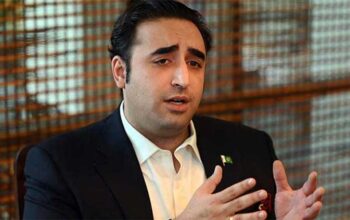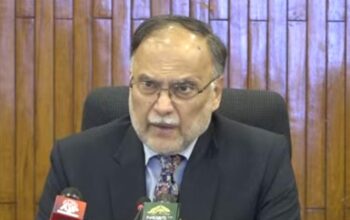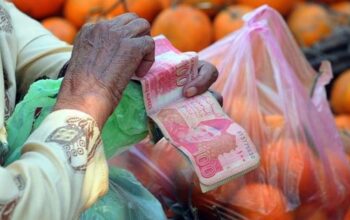By Staff Reporter
ISLAMABAD: The International Monetary Fund (IMF) executive board approved on Wednesday a new $3 billion loan for Pakistan to support its economic stabilization program, and released about $1.2 billion immediately, the IMF and the Pakistani government said.
Pakistan and the IMF reached a staff-level agreement on the nine-month Stand-By Arrangement (SBA) last month. The board’s approval was mandatory before disbursing the first tranche, with the rest to arrive later in installments.
The SBA comes at a challenging time for Pakistan, which faces large fiscal and external deficits, rising inflation, and eroded reserve buffers in the fiscal year 2023 that ended in June.
The loan follows after Pakistan’s previous three-year Extended Fund Facility (EFF) program was derailed by the policy missteps last year.
The IMF executive board “approved a 9-month Stand-By Arrangement for Pakistan for an amount of SDR 2,250 million (about $3 billion, or 111 percent of quota) to support the authorities’ economic stabilization program,” the lender said in a statement.
The IMF said the arrangement will provide a policy anchor for addressing domestic and external imbalances and a framework for financial support from multilateral and bilateral partners.
“The Executive Board’s approval allows for an immediate disbursement of SDR 894 million (or about $1.2 billion). The remaining amount will be phased over the program’s duration, subject to two quarterly reviews.”
The deal, a lifeline for Pakistan, which has been on the cusp of default, came after eight months of tough negotiations over fiscal discipline.
Prime Minister Shehbaz Sharif welcomed the IMF approval as a major step forward in his government’s efforts to stabilize the economy and achieve stability.
“It bolsters Pakistan’s economic position to overcome immediate- to medium-term economic challenges, giving the next government the fiscal space to chart the way forward,” Sharif said in a tweet.
The IMF said Pakistan’s economy was hit hard by significant shocks last year, including the spillovers from the severe impacts of floods, large volatility in commodity prices, and the tightening of external and domestic financing conditions.
“These factors together with uneven policy implementation under the Extended Fund Facility combined to halt the post-pandemic recovery, sharply increase inflation, and significantly depleted internal and external buffers,” IMF Managing Director Kristalina Georgieva said.
She said Pakistan’s new SBA, implemented faithfully, offers an opportunity to regain macroeconomic stability and address these imbalances through consistent policy implementation.
Georgieva said the fiscal year 2024 budget, which targets a modest primary surplus, is a welcome step toward fiscal stabilization.
“The anticipated improvement in tax revenues is critical to strengthen public finances, and to eventually create the fiscal space needed to bolster social and development spending. Maintaining discipline over non-critical primary expenditure will be essential to support budget execution within the envisaged envelope.”
She also urged the authorities to strengthen energy sector viability by aligning tariffs with costs, reforming the sectors cost base, and better-targeting power subsidies.
Georgieva said the recent increase in the policy rate by the State Bank of Pakistan (SBP) is appropriate given the very high inflationary pressures, which diminish purchasing power and hurt the poor.
“Going forward, monetary policy should remain data-driven and focused on bringing inflation down to single digits over time. The SBP should continue to allow exchange rate flexibility to help absorb external shocks.”
Copyright © 2021 Independent Pakistan | All rights reserved




